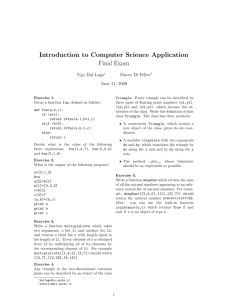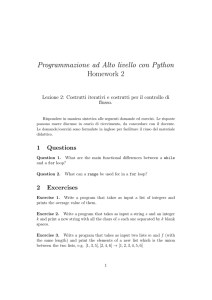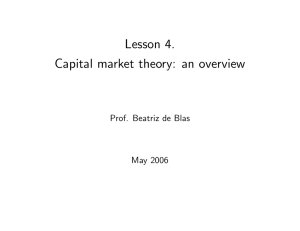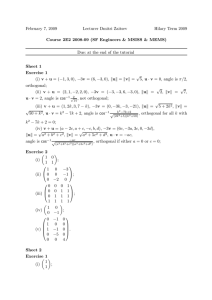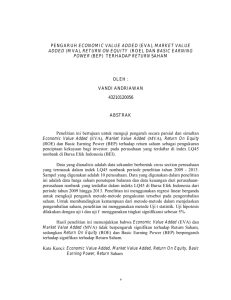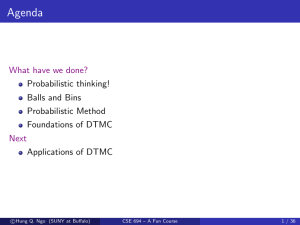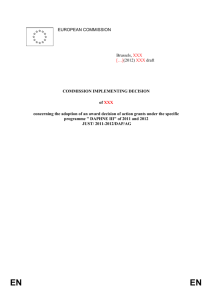Introduction to Computer Science Application Final Exam
advertisement
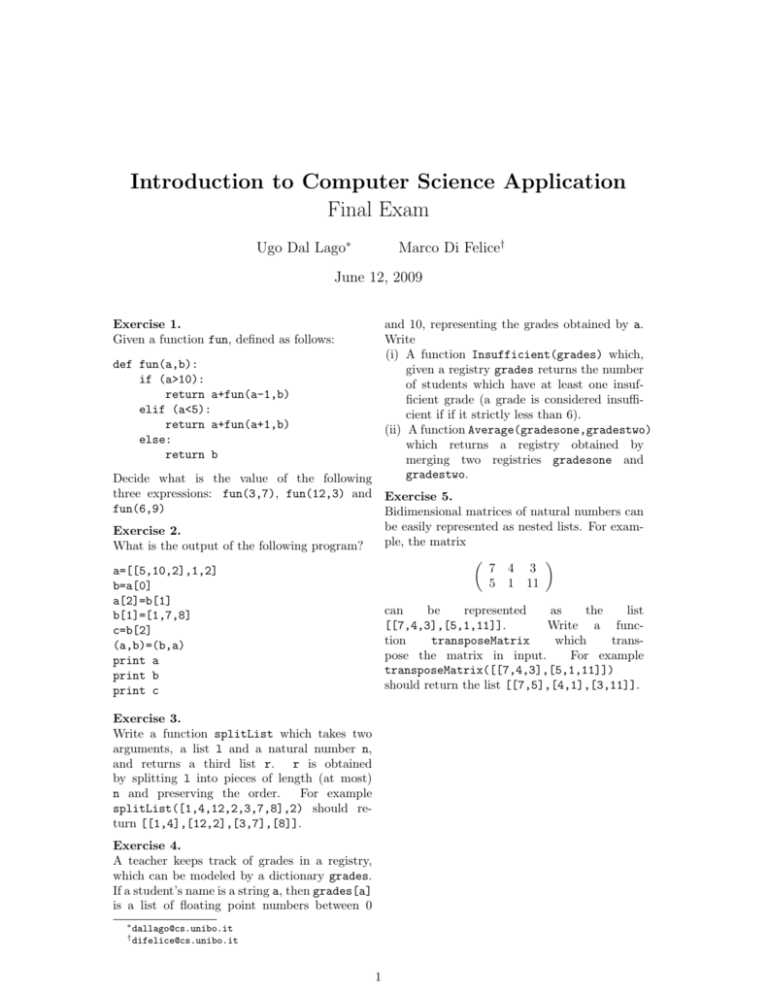
Introduction to Computer Science Application Final Exam Ugo Dal Lago∗ Marco Di Felice† June 12, 2009 Exercise 1. Given a function fun, defined as follows: and 10, representing the grades obtained by a. Write (i) A function Insufficient(grades) which, given a registry grades returns the number of students which have at least one insufficient grade (a grade is considered insufficient if if it strictly less than 6). (ii) A function Average(gradesone,gradestwo) which returns a registry obtained by merging two registries gradesone and gradestwo. def fun(a,b): if (a>10): return a+fun(a-1,b) elif (a<5): return a+fun(a+1,b) else: return b Decide what is the value of the following three expressions: fun(3,7), fun(12,3) and Exercise 5. fun(6,9) Bidimensional matrices of natural numbers can be easily represented as nested lists. For examExercise 2. ple, the matrix What is the output of the following program? 7 4 3 a=[[5,10,2],1,2] 5 1 11 b=a[0] a[2]=b[1] can be represented as the list b[1]=[1,7,8] [[7,4,3],[5,1,11]]. Write a funcc=b[2] tion transposeMatrix which trans(a,b)=(b,a) pose the matrix in input. For example print a transposeMatrix([[7,4,3],[5,1,11]]) print b should return the list [[7,5],[4,1],[3,11]]. print c Exercise 3. Write a function splitList which takes two arguments, a list l and a natural number n, and returns a third list r. r is obtained by splitting l into pieces of length (at most) n and preserving the order. For example splitList([1,4,12,2,3,7,8],2) should return [[1,4],[12,2],[3,7],[8]]. Exercise 4. A teacher keeps track of grades in a registry, which can be modeled by a dictionary grades. If a student’s name is a string a, then grades[a] is a list of floating point numbers between 0 ∗ dallago@cs.unibo.it † difelice@cs.unibo.it 1
